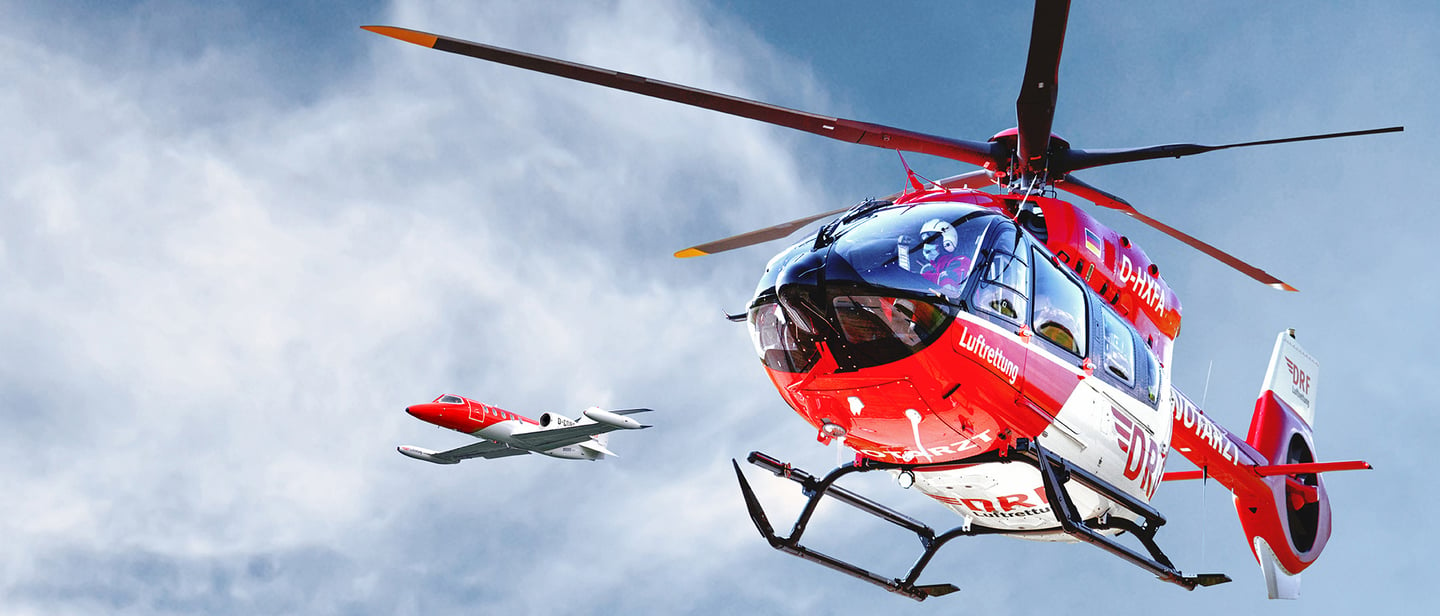
Ultrasound courses
-
Background
We have used mobile ultrasound devices in our rescue missions for more than 15 years. During this time, we have carried out over 40,000 ultrasound scans at places of emergency. In our intensive course concept, we share our pooled experience in this preclinical ultrasound with emergency doctors, hospital doctors and members of helicopter emergency medical service technical crews (HEMS TC) as well as paramedics. The course is based exactly on the ‘emergency ultrasound’ curriculum put out by the German Society for Ultrasound in Medicine (DEGUM) and, accordingly, is certified by DEGUM.
Life-saving decisions thanks to mobile ultrasound
Ultrasound provides an option for preclinical imaging at the site of an emergency. Consequently, it can have a life-saving impact on the treatment strategy and mode of transport that you decide on during a mission and on how important the time factor is. Our ultrasound courses therefore give you optimal preparation for using mobile ultrasound devices correctly and help you to keep improving your patients’ care.
Highly modern technology in use
Our training includes ultra-modern ultrasound devices. The ones currently used are highly compact and feature two different ultrasonic transducers. Thanks to the two differently shaped sensors, they can examine flat as well as deeper parts of the body extremely well.
-
Structure and content
We put great value on practical exercises. This is why you receive training on using ultrasound under the guidance of our experienced instructors, with genuine patients and test subjects in practice bases designed to be highly realistic.
In particular, we teach you in-depth, essential information about the following topics:
- Using an ultrasound device
- Emergency ultrasonography of the thorax, abdomen and vessels
- Interventions controlled by ultrasound
- Ultrasonography of the heart, particularly emergency echocardiography
- Scans in cases of cardiac arrest
- Applying the e-FAST (extended focused assessment with sonography) method
The practical scans focus on emergency ultrasonography of the:
- Thorax (detecting pneumothorax or pleural effusion)
- Abdomen (free-flowing fluid that is a sign of intra-abdominal bleeding, acute inflammatory conditions)
- Vessels (aortic aneurysm, thrombosis)
- Heart (differentiating shock, reversible causes of cardiac arrest such as lung embolism)
-
Course duration and location
This course lasts two days. It takes place at various locations within Germany.
Interested? Then secure your place in one of the courses below now.
Courses
